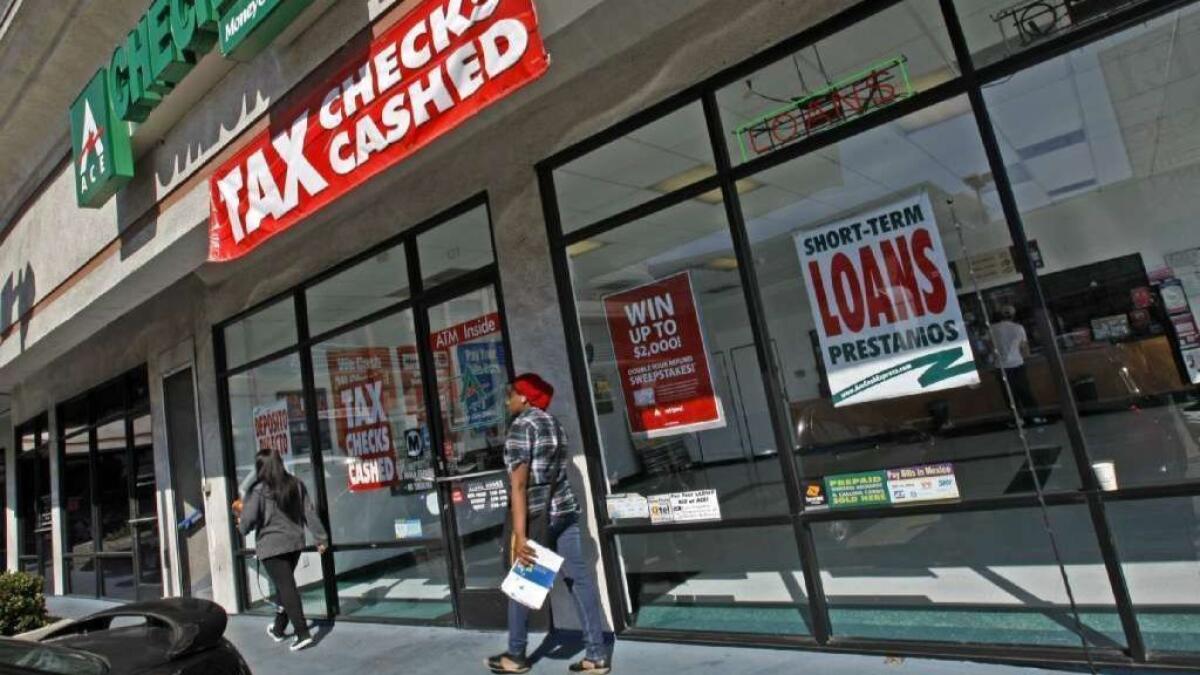Gavin Newsom has a good idea to protect Californians from predatory lenders. Can he get it done?

- Share via
The collapse of the housing bubble in 2007 showed how little attention federal regulators had been paying to predatory, misleading and fraudulent practices by lenders. That’s why, as part of the Dodd-Frank financial industry reform law in 2010, Congress created an independent Consumer Financial Protection Bureau with the power to adopt and enforce rules for lenders, debt collectors and other providers of consumer services.
What the bill’s authors didn’t envision, however, was that the bureau would care about consumer protection only as much as did the president who appointed its director. And since the departure of the bureau’s initial leader, Richard Cordray, President Trump has installed directors who were either outwardly hostile to its very mission or determined to reverse the good it had done.
That’s why Gov. Gavin Newsom included in his January budget proposal a plan to give Californians a better shield against unfair or deceptive acts and practices regardless of who’s running (or stifling, as the case may be) the federal CFPB. Such acts and practices are already illegal under California law, but the authority to address them is scattered among various state agencies or, in the case of unlicensed and unregistered businesses, not given to any agency at all. The governor’s plan, which the Legislature is still considering, would give the state Department of Business Oversight the ability to enforce the same rules across all the companies vying to serve California consumers.
The current patchwork of oversight responsibilities leaves too many gaps that allow unscrupulous lenders to evade enforcement. It should be in the interests of all responsible businesses as well as consumers to have everyone play by the same set of rules.
Nevertheless, the trade associations for bankers, payday lenders, debt collectors and 14 other groups with a stake in financial services are pushing the Legislature to exempt their members from the bill’s reach. Just focus on the companies that aren’t licensed or regulated today, they say, as if the current regulatory scheme is doing a bang-up job keeping them on the straight and narrow. They also argue that the current recession is a bad time to expose them to more burdensome scrutiny and a proliferation of state rules.
They couldn’t be more wrong. Bad economic conditions breed bad practices in the financial industry. As with clean air and water rules, California needs to provide a foundation of protection for borrowers and savers in the state that will be there regardless of what the federal government is doing — or in this case, what it has stopped doing.
More to Read
A cure for the common opinion
Get thought-provoking perspectives with our weekly newsletter.
You may occasionally receive promotional content from the Los Angeles Times.









